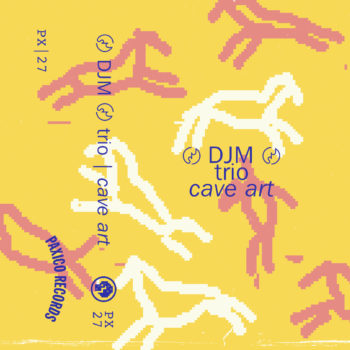It’s Detroit, Michigan, 1996. A hip hop group called “Ssenepod” (‘dopeness’ spelled backwards) was working on their debut in a place called Conant Gardens. Later known as Slum Village, they started off with two albums: Fan-Tas-Tic (Vol. 1) and its preeminent successor, Fantastic, Vol. 2.
Fast forward after the release of a short album under the moniker J-88, and things began to change for Slum Village. Shortly thereafter, J Dilla, the phenomenal hip-hop producer and molder of the SV vibe, departed the group to focus more on solo efforts. It was then that the two remaining members of Slum Village turned to a new emcee named Elzhi. Slum Village would never been the same from then on.
SV dropped their third official studio album Trinity (Past, Present and Future) in 2002 with Capitol Records. Although the beats may have been a little different and the line-up changed, it is without a doubt that Slum Village’s Trinity is a great record. Unfortunately, it has been left in the dark when it comes to not only Slum Village’s discography, but also when it comes to albums in general from the time period. Slum Village’s third album faced contempt by some as an egregious mistake that left a bad taste in the mouth of fans spoiled by the gift of J Dilla’s production and lyrical contributions on former pieces.
And so it is now that some light be shed on the disparaged and underappreciated work that is Trinity. In addition, I was honored to talk with a good friend of Baatin, who goes by the name Leaf Erikson. Erikson gave me a greater insight on the times and trials surrounding the recording/production, release, and aftermath of Trinity (Past, Present and Future) which I will uncover as some of the hidden truths behind the forgotten masterpiece.
Slum Village is arguably one of the greatest hip hop groups to ever emerge out of the Detroit hip hop scene. Their legendary status is unparalleled, as is their organic, gritty-hip hop sound. “Slum Village paved the way for a lot of us here in Detroit to do what we do on an international level,” Erikson believes. But it was after the release of their highly praised and widely loved album Fantastic, Vol. 2 that renowned beat-smith Jay Dee decided to leave the group and pursue a solo career, as well as move on to other things.
 According to Erikson, Slum Village “seemed to be pretty confident about [their producer situation]. T3 had already been doing a lot of production anyway and [Baatin] did, as well; they were fine.” In retrospect, the sound may have been slightly different than their past efforts, but that was “new production coming in the group, but also they were [trying to] appeal [to a wider audience and] get a little bit more visibility.”
According to Erikson, Slum Village “seemed to be pretty confident about [their producer situation]. T3 had already been doing a lot of production anyway and [Baatin] did, as well; they were fine.” In retrospect, the sound may have been slightly different than their past efforts, but that was “new production coming in the group, but also they were [trying to] appeal [to a wider audience and] get a little bit more visibility.”
It was around the time of Trinity’s early stages of creation that Slum Village recruited a young producer by the name of Black Milk, as well. After meeting with Black Milk, “they were pretty confident they could pull it off,” Erikson said. And in some people’s retrospective opinion, they did; however, Slum Village seemed unable to continue on as a dominant Detroit hip-hop group after this release. Though it lit the torch for the career of their newest member, Elzhi.
“Jay [Dee] gave El[zhi] a huge co-sign [and] Baatin was really a big fan of El[zhi],” Erikson explained. At the time, this up-and-coming lyricist definitely put a fresh spin on the classic Slum Village team. Whereas on Fantastic, Vol. 2, SV held an accentuated grassroots style that was pertinent throughout the entire album, Elzhi seemed to bring a more eclectic, elevated and versatile aura to the group that only proved to amp up everyone’s lyrical abilities and subject matters. Practically rhyming every other word together, Elzhi bursts onto Trinity on the song “Insane” rapping:
“I’m trying to finish this album while the economy’s fallin’/
Drama be callin’ like it’s palmin’ and dialin’ a quarter diamond/
Behind is a war in a mind of a foreman climate,/
Designed for enormous giant dime proportions…riots.”
Elzhi was definitely a top-notch lyricist and only wrote the illest rhymes for his SV debut. Then again on “La La,” Elzhi proved he can not only rhyme at a very intense level, but he could rhyme intelligently, too:
“I never been down to Earth, I just been deep in thought/
Peepin’ y’all mediocre emcees deletin’ culture/
I cry freedom like the eyes leakin’ from a deceasin’ soldier.”
Conceptually, according to an online review in which the author of the review spoke with the group, the album featured ingenuity unbeknownst to those besides the keenest of listeners. T3 was quoted as saying, “The album has us playing different roles. I play a battle soldier, Elzhi is the orator and Baatin is the shapeshifter.” The author of the review went on to summarize and state that “these personalities…will be evident not only in the rhyming style and the content of the lyrics but also in the energy of the songs.”
 Even with such a talented artist like Elzhi, in hindsight, it was a surprise that upon receiving the news of Dilla’s departure and Elzhi’s emergence, many fans and critics smashed the group for replacing Jay and saying how Elzhi couldn’t be good for the group. This demeaning criticism put a little bit of strain on the group, but they were straight-on to keep doing what they do best and make constructive, raw, lyrical hip-hop music.
Even with such a talented artist like Elzhi, in hindsight, it was a surprise that upon receiving the news of Dilla’s departure and Elzhi’s emergence, many fans and critics smashed the group for replacing Jay and saying how Elzhi couldn’t be good for the group. This demeaning criticism put a little bit of strain on the group, but they were straight-on to keep doing what they do best and make constructive, raw, lyrical hip-hop music.
Though the music was solid, Trinity received poor attention from their new home at Capitol Records, which, according to Erikson at the time “only had Chingy and Dilated Peoples.” The album did not receive as much attention and promotion as it should’ve. “[Slum Village wasn’t] happy… At first…they were geeked; however, they didn’t get the proper push they thought they were going to get.”
The two singles that spawned from Trinity – “Tainted (feat. Dwele)” and “Disco” – did not receive as much praise and attention as SV felt they deserved. Regardless of the quality of the music, it was an unfortunate turn of events that led to the album being ill promoted by the heads of Capitol at the time.
Things only got worse as Baatin got food poisoning while they were overseas after the album release. Baatin was also diagnosed with schizophrenia around this time, which also added another bump in the road for the group. Even with these unfortunate setbacks though, Slum Village was adamant about making music.
Amid the music Slum Village was still making, however, not everybody felt that they were on the same page. “[Baatin],” according to Erikson, “was planning on leaving the group anyway [and] had said many times that he had wanted to just put out 12”s and just help other artists and their careers.” Baatin even rapped on “One”:
“One of these days I’m a show you what I’m made of /
Soon as I’m done with these silly little rap scrubs /
Soon as I’m done making my rap million dollar hits /
Soon as I’m done cleaning my soul of this old curse/
Soon as I’m one with the universe /
I’m done with you little fucks in this little earth/
I rule a planet of my own where you don’t exist.”
Although musically Slum Village was a well-oiled machine, “[Baatin] had made up in his mind that he was leaving anyway,” stated Erikson. Shortly thereafter, Baatin’s contract was terminated and he left the group. So, with the release of Trinity (Past, Present and Future), Slum Village ended up becoming short two players from the original team, but T3 and Elzhi were not giving up on the SV name and later released more albums without Dilla and Baatin (officially).
Albeit Trinity is surrounded by a shady time-period for Slum Village, no one can deny the raw talent and bonafide effort put into the project. In fact, one magazine praised the album and Slum Village saying that it was a contender for hip hop album of the year.
Regardless of any outside criticism, though, Slum Village was “still family” and was together to make music. In the aforementioned online review of the album, the author quoted Baatin as saying “Slum Village is the fluid entity. The core members will always be us three. We may take different roads at different times but we’ll all be involved in Slum.”
Overall, the album is no doubt a great album. It was the border between the ‘old’ Slum Village and the ‘new’ Slum Village. “It had the same Slum Village feel, it just had a different voice,” explains Erikson. Trinity bridged the gap from the overtly jazzy hip-hop style they started off with on Fantastic, Vol. 2, to the updated, more commercial-friendly styles exhibited on later albums, such as Detroit Deli (A Taste of Detroit) [see the Kanye-produced “Selfish”]. Trinity (Past, Present and Future) is just that: a reflection and notification of the past, present and future of Slum Village as a group.
Trinity served as the bronze medallion around the neck of the Detroit collective and will always go down as a misunderstood Slum Village album; yet to anyone who listens, there will arguably be nothing but reserve for an album deserving of nothing but praise.
“I think [Trinity’s] an album that people probably wouldn’t appreciate until five or ten years later, because so many people were so ‘Where’s Dilla? Where’s Dilla?’ But I think as the years [go] on, I think this album [is something] people can really appreciate.”
– Leaf Erikson






